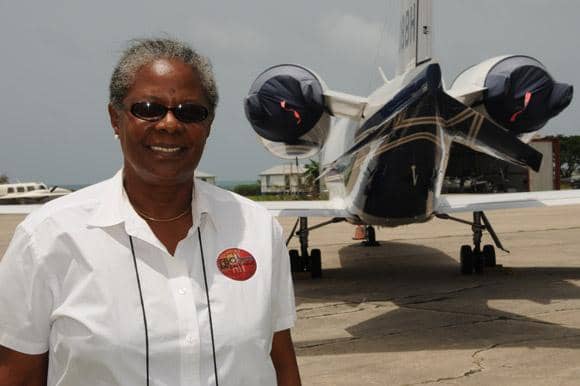
By Makeda Mikael
There are some persons who objected to the term used in reference to the emancipation era and how the enslaved Africans and their children were called in those days.
The British went to great lengths to identify the percentage of white blood in certain children of the plantation, establishing mulatto, quadroon, octoroon, with levels of white privilege tied to the white blood.
Many of these privileged less-coloured children were educated abroad and ultimately were the first to replace the white overseer class left in Antigua, holding the top jobs.
Children of the negras on the other hand joined the small gang and followed their mothers and fathers into the cane-fields and vegetable gardens where even the very youngest labored pulling weeds.
The different upbringing and ultimately inheritance over the last two centuries has created two levels of the haves and the have-nots, which is clearly defined by colour.
Miscegenation came into prominent conversations in the U.S. when some tried to find a way of accepting the mixing of blood in an attempt to pour oil on the Southern racist culture.
Black people also had their names for the poor whites and not so white on the different islands like backra and mushay, while the black people and their children were called negras, half-breeds(light-skinned) and the black children were pickaninnies. And that in polite company!
Whereas oppressed people cannot plan, the methods engaged by the British were geared to keeping the people on the island separated by levels of poverty and colour.
The light-skinned people moved into the positions held by the planter class and the overseer class while the black people settled into the bottom level of existence, which remains to this day.
Caribbean life is drawn along the lines of skin colour, and the injection of East Indians into some island communities has only caused another step down for black people while Middle Eastern people are considered white and a step up.
Most of all the systems are still kept in place by our leaders who seem to have the same mistrust and contempt for our African people as our ancestors suffered in days of old.
Advertise with the mоѕt vіѕіtеd nеwѕ ѕіtе іn Antigua!
We offer fully customizable and flexible digital marketing packages.
Contact us at [email protected]

















“Most of all the systems are still kept in place by our leaders who seem to have the same mistrust and contempt for our African people as our ancestors suffered in days of old.”
Sums it up very well. Love Jesus (yet to be seen), Love Chinese, Love Syrian, Love White. But fail to love our own kind!
So anything positive, cutting edge, any new suggestions?
Congratulations Makeda Mikael another great article. You appear more and more like a worthy historian. Perhaps your conversations with Tim Hector have left a positive mark on you. Great piece. Keep it up.
The way she treats her workers…. has not change either.
Her experience is evident in the written.
The author know all these things and still treat people as less than. Sigh sigh
How to treat employees should be her next article.
Word
I guess Mekeda suffering from self-esteem. Cause Papa longtime done broc that chain for us. She better start reading more books about the 39ers.
Folks just notice where Mekeda is taking her picture? Right behind the jet of one of the rich people she criticizes that supports her business. I mean, why would she shoot herself in the foot. Mrs. Jardine will take away all of her business. Calvin already tried to buy her out, but her price is much too high. Her sons ran anway cause they cannot work with mommy. Her ex Granville my ex-golf partner just shaking his head. Lets play golf and enjoy our golden years. Mekeda looking attention.
@Sidelines:You have gotten personal with this lady. What has she done to you? You even mentioned her ex-husband by name. You are some kind of a friend. Someone I would keep at arms length.There are some truths in her article. In Antigua,where I grew up. Many of those in higher positions in the Offices and Banks etc. were lighter skinned Antiguans. Those of the darker skinned were given the menial work.Even though some were much smarter than those “half breeds”.
For you to ask me this, its make me wonder if you are that young not to know the life story of Mekeda. Its not a secret. She was and still is a very wellknown personality in Antigua.
Sidelines: When I knew her in Antigua. She was not named Makeda. She was not married back then. I left Antigua a long,long,time ago. I do not know her life story.
Comments are closed.